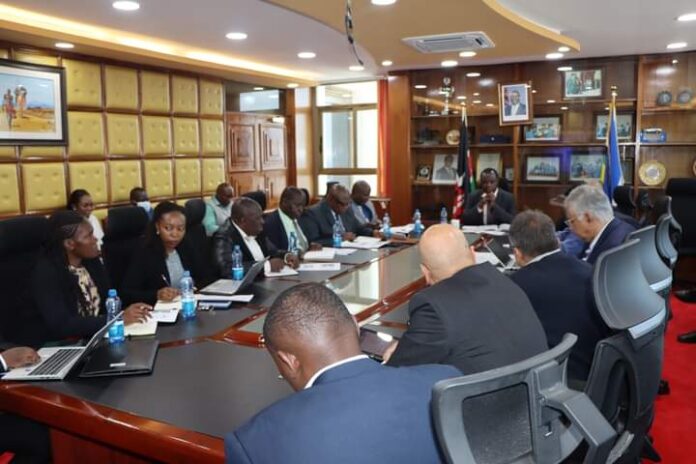The Finance Bill 2024 makes a few progressive recommendations meant to encourage the expansion of industry. Nevertheless, a few others will obstruct this goal and ultimately affect Mwananchi.
The Principal Secretary of the State Department of Industry, Dr. Juma Mukhwana, was invited by the Kenya Association of Manufacturers (KAM) to discuss the impacts of the Finance Bill 2024 on the manufacturing sector and the economy.
Bharat Shah, the Chair of the KAM Trade and Tax Committee, emphasised the necessity for policies that promote manufacturing and strengthen Kenya’s industrial capacities.
He also stressed that, “The Finance Act 2023 punished manufacturers; levies affected manufacturers’ competitiveness. VAT was another problem; we experienced reduced exports and businesses do not want to expand because of additional costs.”
Job Wanjohi, Head of Policy Research and Advocacy at KAM, presented a summary of the comparison between the Finance Act 2023 and the Finance Bill 2024, assuming that the proposals are approved.
The Bill suggests levying the Miscellaneous Fees and Levies Act’s Export Investment Promotion Levy (EIPL) on raw materials used in value-added manufacturing.
Due to the higher cost of production, this levy will hurt local industries’ ability to compete in both domestic and international markets.
In simple terms this aforementioned fee was introduced in 2023 on industrial raw supplies such steel billets, cement clinkers, and kraft paper, supposedly in an effort to boost regional industry.
The implementation of an environmentally-imposed tax on certain commodities produced or imported into Kenya will inevitably result in a price increase for all plastic packaging materials, batteries, and hygiene products.
In order to manufacture value addition, raw materials and intermediate products will become more expensive as a result of the proposal to raise the Import Declaration Fund (IDF) from 2.5% to 3.0%.
The cost burden on Mwananchi will eventually rise due to the anticipated 25% excise levy on vegetable oils, as cooking oil is still a necessary item.
Mr Wanjohi reiterated, “We have made several presentations to the Parliamentary Finance Committee. Our call to the Principal Secretary for Industry is to thoroughly examine the proposals and recommendations from KAM and consider their inclusion in developing the Finance Act 2024.”
He added, “As we engage and deliberate on the Finance Bill 2024, KAM shall continue to advocate for a conducive business environment through the implementation of the right policies. Our focus as a country must be on supporting the manufacturing industry to create jobs and wealth, boost productivity, lower the cost of living, and ultimately, create prosperity for Kenya.”



















